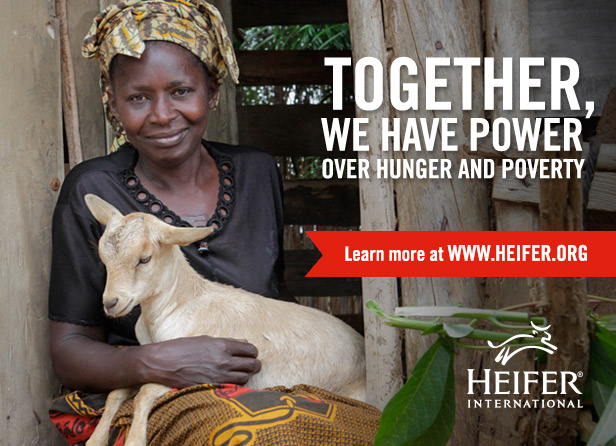malawi: farms!
Hey, friends, I'm back from Malawi!
If you've been following along on Instagram, you know that this was a pretty epic trip: there were lakes! And farms! And clinics! And one seriously pissed-off crocodile! I took over 4000 photos on this trip, and jetlag (and a nasty little cold) notwithstanding, I'm slowly going through them. So this week I'm hoping to share my favourite stories with you, starting today, with the farms of Malawi, and how they benefit from a great organization, Heifer International.
This trip to Malawi, while organized by ONE, was sponsored in large part by Heifer. I sort of have a soft spot for Heifer: for the last few years, every Christmas, my sister's family, my parents and my family have "exchanged livestock" -- we buy each other goats or pigs or cows as gifts. The animals, of course, don't come to us -- I wouldn't know one end of a farm animal from another -- but instead, they are given to small farmers in emerging markets, so that they can breed them and milk them and general improve their livelihoods through raising them. Every year, I think of a farmer somewhere in Africa or Nepal or Bangladesh receiving their animal, and going off on their merry way, to develop their farms on their own.
Turns out that my image of what Heifer does was only partially right.
They do provide animals to farmers, of course, but that's just the beginning. Heifer also has folks on the ground in each of these countries, helping these farmers maximize their profitability with their new livestock. They teach them how to keep their animals healthy, yes; but they also assist them in creating agricultural cooperatives (such as milk bulking stations, where farmers can bring their milk to a centralized location for refrigeration and storage until a milk processor can collect it to process for distribution), savings and loan organizations, teach gender equality, educate on farming practices that are kind to the environment, and assist the development of social capital: organization of communities, and passing on their gift, by ensuring that the first female born of their livestock is passed on as a gift to another member of their community.
In other words, their work is way more than just a goat.
So on this trip, we spent several days visiting farmers who had benefited from the work that Heifer has done -- indeed, several communities that had benefited from the ripple effect that comes with assisting even one farm family. We heard from farmers who proudly gave us tours of their farms, with their healthy livestock and stories of children they could finally send to school because of their profitability. We listened as women farmers described the benefits of the savings and loan associations they had created, and how supporting each other had given them confidence. We learned about milk bulking cooperatives that made it possible for dairy farmers to reduce milk spoilage, and thus maximize their profitability.
And everywhere we looked, there was so much light.
Mr. Mtika, a disabled farmer who has had great success with his farm. He was so eloquent and passionate about his work, one member of our delegation was prompted to ask him if he ever considers running for office. He laughed and demurred, saying, "I couldn't have done any of this without my wife's help."
Mr. Mtika's wife.
The Mtikas' eldest daughter, Dorothy, making nsima for dinner in the family's new, more environmentally-friendly kitchen. More people die around the world from smoke inhalation from indoor cooking than from HIV and malaria combined -- the Mtikas' new cookstove burns less fuel and has better ventilation than their old one.
The elderly gentleman in the middle of the photograph, Gusiano, describes (in the Queen's english, no less!), how the milk bulking facility he founded works. His language was so precise (he reminded me of my father's father), one of my travel companions asked him to share his story. Turns out he was an accountant, but when he retired he became a farmer and founded this facility, where local farmers can deliver the milk their cows produce to the large metal tank, above, to keep stored and refrigerated until the milk processor comes to collect it, and process it for distribution.
If a farmer is lucky enough to have a bike, he or she will transport the milk they collect daily in the manner you see above to the milk bulking facility. Otherwise, the farmer will carry it (often on her head) the 10 to 20 kilometers to the facility every day on foot.
The meeting of these women's savings and loan association is about to begin. Their money is kept in a metal cashbox, with three different locks -- and three different women are the keepers of the keys.
Naturally, the best parts of visiting these farms were the friends we made.
More stories to come (including, I promise, that crocodile story). In the meantime, if you'd like to learn more about the work Heifer International does (including, of course, how you can buy a goat of your own!), please click here or on the image below.
See you tomorrow, friends.
Song: Djamakoyo by Adama Yalomba. This song isn't Malawian -- the singer is from Mali -- but I love it. And for the rest of the week, I'll share some of my favourite songs from the continent of Africa.



















